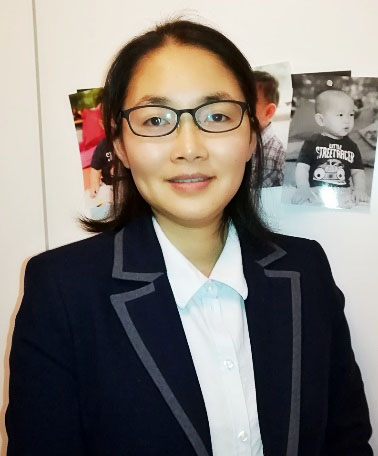Dr Shuang Li has been awarded this grant to support her project "Organic-Polyoxometalate Co-Crystal-Derived Mesoporous Metal Carbides/Nitrides for Hydrogen Production from Seawater.”
In this project, she will focus on the synthesis of organic-Polyoxometalate (POM) co-crystals and organic-POM-silica composites, which then will be used as precursors for fabricating mesoporous Mo/W carbides/nitrides. The fabricated mesoporous Mo/W carbides/nitrides will then be applied as electrocatalysts for HER (Hydrogen Evolution Reaction) and seawater splitting.
Shuang will receive 238.800 Euro for two years from the DFG (Deutsche Forschungsgemeinschaft) to carry out this project as research group leader. The grant is part of the DFG program “Temporary Positions for Principal Investigators”.
With this funding, she plans to build a complete carbon material preparation set up, an electrochemical catalytic performance research platform, and a seawater electrolysis device.
The project will be conducted in Prof. Arne Thomas’ group, where she will be able to use the X-ray diffraction (XRD), Brunauer-Emmet-Teller (BET) surface analysis, X-ray photoelectron spectroscopy (XPS), and thermogravimetric analysis (TGA) equipment to perform her experiments. The project also plans multiple collaboration, not only with other UniSysCat research groups (e.g. with BasCat on the metal carbide materials for industrial catalytic reactions and the Fritz-Haber-Institute for solid-state research) but also external groups. Shuang plans, for example, to collaborate with the group of Dr. Yi Wang at the Stuttgart Center for Electron Microscopy to use high-resolution scanning transmission electron microscopy (HR-STEM) to investigate the materials, and with the group of Prof. Chong Cheng, Sichuan University, China.
Five and half years ago, our program’s recruitment committee had chosen Shuang as a BIG-NSE scholarship holder for the group of Arne Thomas. She received the BIG-NSE scholarship for the first three years of her PhD, which started in Oct. 2015. The last four months of her PhD were financed by a “PAS” scholarship (Promotionsabschlussstipendium), which financially supports women writing their PhD thesis.
A mother of two young children (1 and 5 years old), Shuang managed to publish no less than 15 publications (five as first author) during her PhD. Many of the journals she published in have a very high Impact Factor (IF):
- Advanced Materials (IF=27.398): 4
- Angewandte Chemie International Edition (IF=12.959): 2
- Advanced Functional Materials (IF= 16.836): 1
- Chemical Reviews (IF= 52.758): 1
- Journal of American Chemical Society (IF=14.612): 1
Since her defense on January 30, 2019, Shuang has been working as a Postdoc in the same group. After having finished her PhD, she first received a six-month financial support from the BCP program (Berliner Programm zur Förderung der Chancengleichheit für Frauen in Forschung und Lehre) to start her Postdoc. Then, she received a six-month support from the TU internal postdoc funding for performing preliminary experiments and preparing the application proposal.
Altogether, she has published 50 publications since the beginning of her scientific career. Her H-index is 30, and her papers had more than 4.600 citations.
Shuang was already thinking about the grant application while completing her PhD thesis. It was her first such application ever. She submitted it to the DFG office in March 2020 and it was approved within only four months. With the chance of 30% to 40% of being granted such funding, Shuang is very happy to have been successful among the large number of applicants. She is convinced that her success is mainly due to being able to provide promising preliminary experimental results and a CV perfectly fitting the research background required for the project.
We wish her a good luck and a lot of success with her DFG project in the coming two years!
